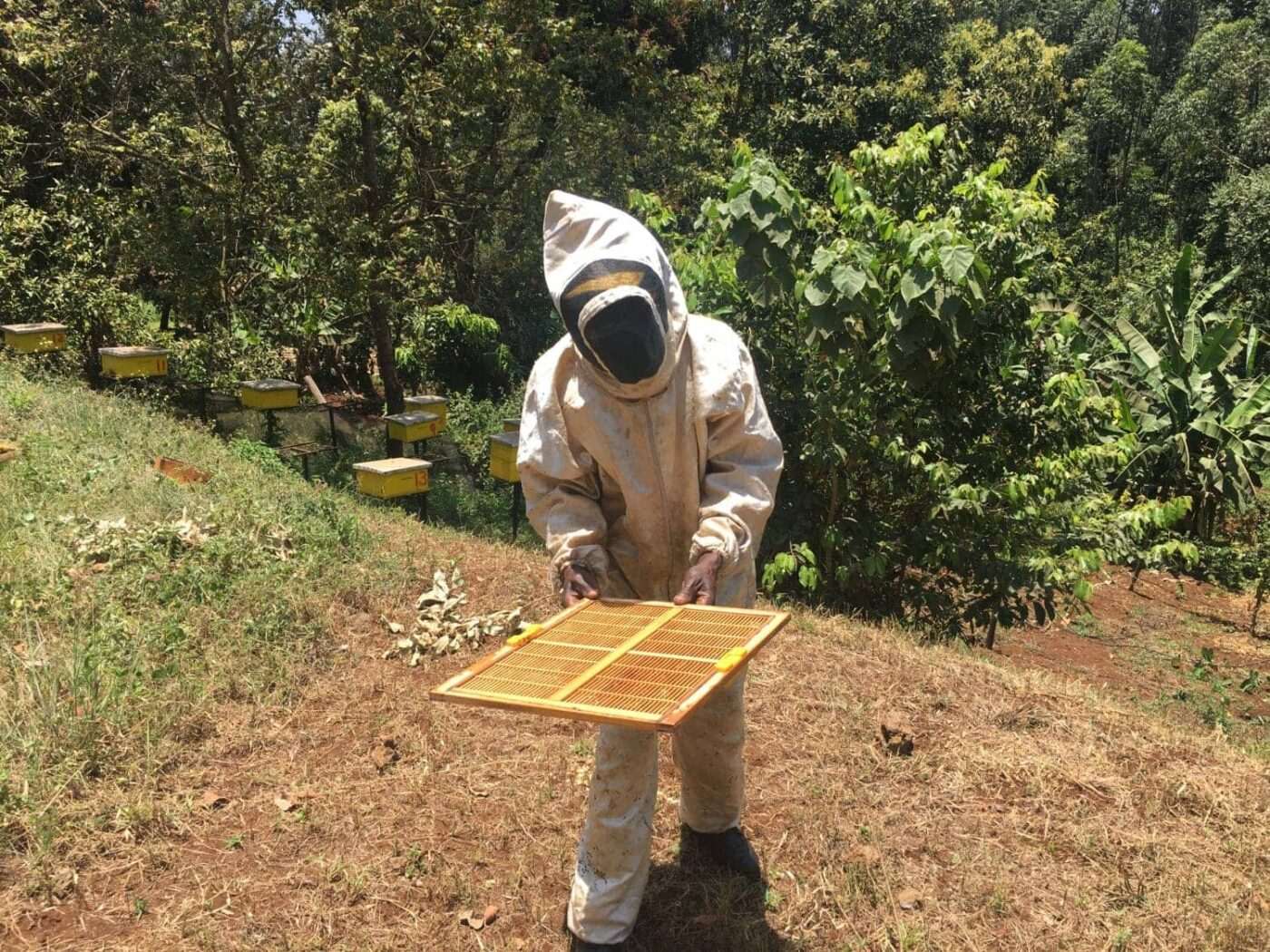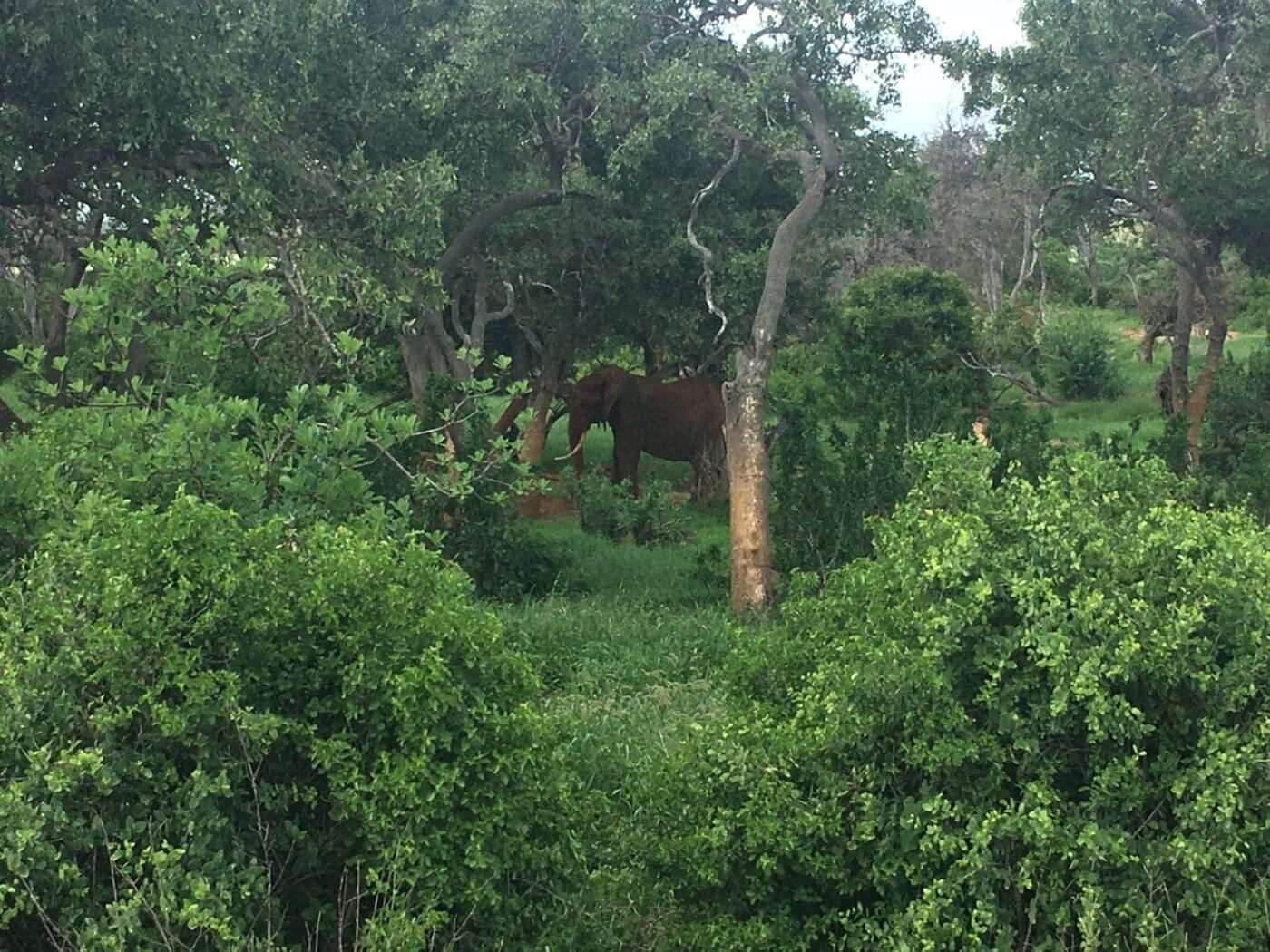
by Minister of Information JR Valrey
In light of the Covid pandemic and the “vaccines,” it is very important for the Black community to be conscious of how to practice preventative medicine as well as know how to heal ourselves through more holistic means.
People already know that bees are key to getting most plants pollinated, but the honey that they produce has been popular as an antimicrobial medicine for thousands of years, at least dating back to the people of Kemet.
Another amazing aspect about honey is that it does not age like regular foods. Edible honey has been found in the pyramids that has been preserved for milenia.
I came into contact with Kenneth Randolph, the CEO of African Honey Imports, LLC, and he introduced me to East African honey at Carnival in Oakland where he was vending. The taste of his East African honey was very rich, with a creamier texture than the commercial honey that I had grown up with, due to the fact that sugar and water is added to most corporately sold brands. Check out Kenneth Randolph in his own words.
JR Valrey: How did you become interested in bees and selling honey?
Kenneth Randolph: It started when I had my first coffee drink when I arrived in Nairobi, Kenya, in November of 2020. It was my first trip to Africa and it was a 21-hour flight. When I woke up the next day, I really needed some coffee. At the coffee shop in my hotel, I put the honey they had on the counter in my drink and, man, my toes started tingling! I never tasted honey like that before.
Later that week, on a Saturday morning, my friend took me up north of Nairobi to the city of Meru where they had a farmer’s market. I was amazed by the variety and bounty of fruits and vegetables there, all grown with natural fertilizers like rabbit urine and elephant dung!
They had fresh honey there right out of the hive. I tried some there and had the same sensation as the first time I tried some. I started to talk with the farmers and learned how they harvest the honey. I thought to myself how something like this would be huge back home. I asked the farmers if they had ever thought about exporting. They all said No. That’s when I became interested.
I did my research and found that I could import honey from Kenya through the African Growth and Opportunity Act (AGOA). Legislation that President Clinton lobbied for in 1998. After a year of dealing with the State Department, Customs, FDA, state, county and city health departments and even the FBI, I was allowed to bring it in.
JR Valrey: How did you become aware of African honey and its unique texture, taste and properties?
Kenneth Randolph: It was when I started to talk with the farmers at the market in Meru that I learned about honey in Kenya. I learned that it is considered medicine in Kenya. In fact, the swahili word for honey is the same as medicine, Dawa.
As a retired nurse, I saw first hand how Africa was handling the Covid crisis, and its results were better than anywhere in the Western Hemisphere. How was that? Could it be that the organic foods and honey were lending to better immune systems? The farmers seemed to think so. I know I could taste its unique properties. I learned from the farmers that they get their honey from hives that line their fields and are used to protect their harvest from being eaten by the migrating African elephants. Elephants hate bees and are afraid of them.

As the farmers push further into the forest, their crops are in their paths and the honey harvesting prevents adverse outcomes for either the farmer or the elephant. It’s something that Kenyans have done for hundreds if not thousands of years. I also learned that honey in Kenya, like wine in France, tastes different depending on the region it’s harvested in.
In Meru, which is close to Mount Kenya National Forest, the bees have the whole forest to harvest so the honey has overtones of the Baobab tree, Orange tree, lemon bushes and mint. That variety and diversity of pollinators lends to the honey’s tastes, color, texture and medical properties. It’s amazing and something I’ve never seen in the U.S., but at supermarkets in Nairobi, the entire grocery aisle is devoted solely to honey from all over the nation. Amazing!
JR Valrey: What are some things that honey can be used for medicinally?
Kenneth Randolph: From the Kenyans, I learned that honey has been used for hundreds if not thousands of years for all sorts of maladies: upper respiratory infections such as colds or flu, insomnia, headaches, acne, burns or scrapes, indigestion or upset stomachs. They are using honey for diabetics as it contains a lower glycemic index than sugar.
It’s a fabulous conditioner for hair. It helps children with their cough. It is truly medicine, but for me it’s the fact that Covid didn’t affect Kenya and most of Africa as bad as the U.S. with all our advanced science and vaccines. That says something about the holistic health benefits of African honey.
JR Valrey: Where exactly do you get your honey that your company sells? Have you been to the farms where the beehives are kept?
Kenneth Randolph: My company works with an association of small farmers whose farms are in Tharaka Nithi county in Northwest Kenyan. I’ve visited the farms and the forest where the honey is harvested. It’s a fascinating experience because you understand bee behavior from the Bee Whisperers, who actually get the honey out of the hives.
I learned from them that rather than the stereotype of “Killer Bees,” mindless killing machines, they are actually smarter and more organized than most humans. They are very protective of their territory and if you cross one bee, such as swat at it, the whole hive will go after you.
One bee will hover around you to test you and see if you’re aggressive. So long as you don’t overreact, that bee will leave and report back to the hive you’re cool.
Also I learned, almost too late, to never wear black around bees. To their eyesight, you’ll present a threatening form and are much more likely to attack. So long as you’re cool, they’re cool.
JR Valrey: What made you choose this particular honey out of Kenya? What kinds of flowers do the bees there pollinate and how does that affect the taste of the honey?
Kenneth Randolph: Thraka dark honey was the first type of honey I tested when I had my first cup of coffee in Kenya. I mentioned the effect it had on me. My buddy has family from the country so I was able to go upcountry and actually go to a farmer’s market and meet the farmers personally. I got invited to see the harvesting.
That area of Kenya is close to Mt. Kenya National Park. A forest which has the Baobab tree, orange trees, lemon bushes, mint and all the crops that the farmers are producing.
Tharaka dark honey is known for its rich, robust and distinct taste which sets it apart from other types of honey. It has a deep, earthy taste that is both sweet, slightly tangy, with notes of molasses, toffee and spices. The complexity of flavor is first noted, but its unique health benefits – an actual feeling of well-being – is what really sets it apart from honey in the Western Hemisphere where the environment is less pristine.
JR Valrey: Do you sell honey on a mass level or do you just sell it at vending booths?
Kenneth Randolph: We aspire to sell on a mass level but we’ll scale up as demand, funding and the market bears. As we are still a new company, we sell at vending booths during festivals in and around the Bay Area and Northern California. We have a regular pop-up location at Lake Merritt on the Grand Avenue Promenade on Saturdays and Sundays from 10 a.m. to 5 p.m.
JR Valrey: Why are bees important to the environment? What kinds of threats do bees face environmentally?
Kenneth Randolph: That’s it: the environment or, rather, what we’ve done to the environment. The poisons and pollutants we have poured into the earth’s atmosphere have now come back to bite humans. The artificial fertilizers and insecticides have ruined the land. Last year, over half U.S. honey hives died.
In France, their production of honey has completely collapsed. Ukraine used to farm most of the honey in Europe. The war took care of that.
In Asia, China specifically, the quality of honey is so poor that you’re likely to get mostly water and sugar with the honey. Everywhere where there is large scale industrial activity for profit, bees are dying. Without bees, much of the produce – fruits, vegetables, nuts – will not be able to grow.
Here in California we have to import bees from Mexico to pollinate the almond and walnut farms. Even then we have to give them sucrose, water and sugar, because the bees have so little from the land to work with. Bottom line is the bottom line. Food will become more expensive to produce and lead to higher prices at the stores. The quality and health benefits of our food we consume will continue to deteriorate. Without bees, we can look forward to more lab created food.
JR Valrey: How could people sample and buy your honey?
Kenneth Randolph: Come to Lake Merritt on Saturdays or Sunday between 10 a.m. and 5 p.m. and try a sample. It’s so unique a taste that you won’t even think about the drive to Oakland, only how good you’ve felt and will feel in the future.
JR Valrey: How can people keep up with you online?
Kenneth Randolph: Of course. We have our online store: www.africanhoneyimportsllc.com. We are also on Facebook and we are on Instagram as africanhoneyimportersusa. We look forward to hearing from all.
JR Valrey, journalist, author, filmmaker and founder of Black New World Media, is also the editor in chief of the San Francisco Bay View newspaper. He teaches the Community Journalism class twice a week at the San Francisco Bay View newspaper office. He can be reached at jr@sfbayview.com.





